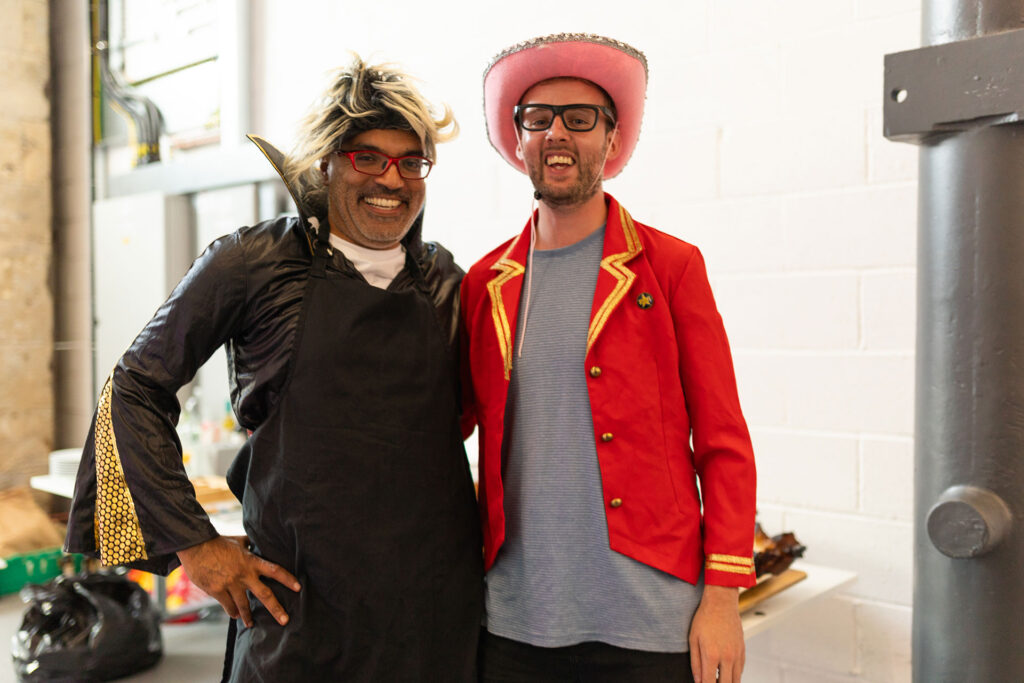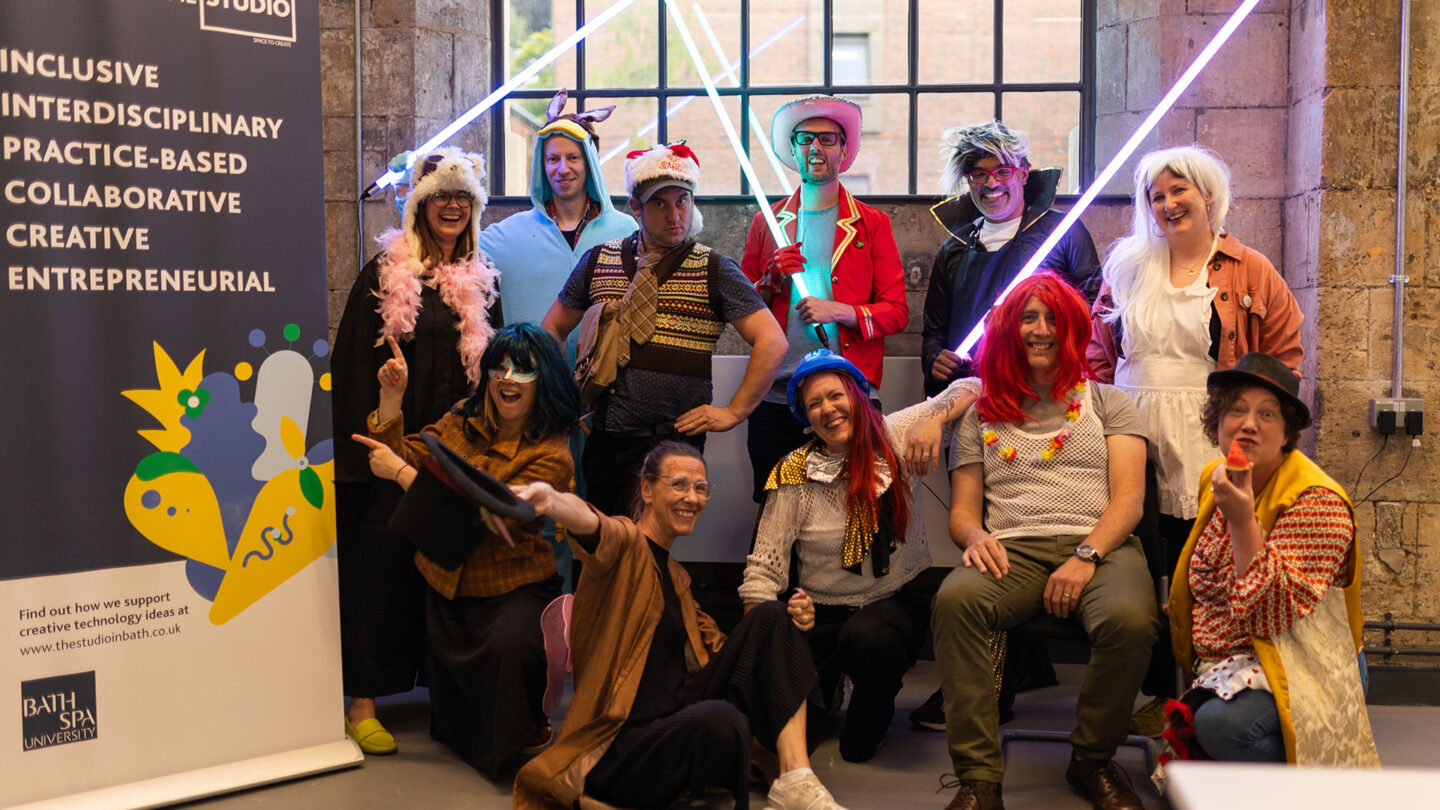Playful Evaluation: The 2024 Studio Innovation Fund Evaluation Evening
We recently held the evaluation evening for this year’s Studio Innovation Fund, which supported three Studio Resident-centered collaborations to explore creative technology solutions addressing pressing social issues.
The evening was both insightful and filled with laughter, demonstrating that evaluation can be rigorous, tangible and beneficial, as well as playful. We learned about the work the awardees have been doing from February to July and how the fund has been supporting them throughout 2024.
The teams from the funded projects were brought together at the outset of the process and guided in developing and sharing a theory of change specific to their initiatives. This approach helped them stay focused on the overarching purpose and intended impact of their work, moving beyond the day-to-day challenges of partnership building and task completion. This foundational step in their journey ensured that, as they navigated their projects, they remained aligned with their broader goals, which was clearly reflected in the presentations and discussions during the evaluation evening.
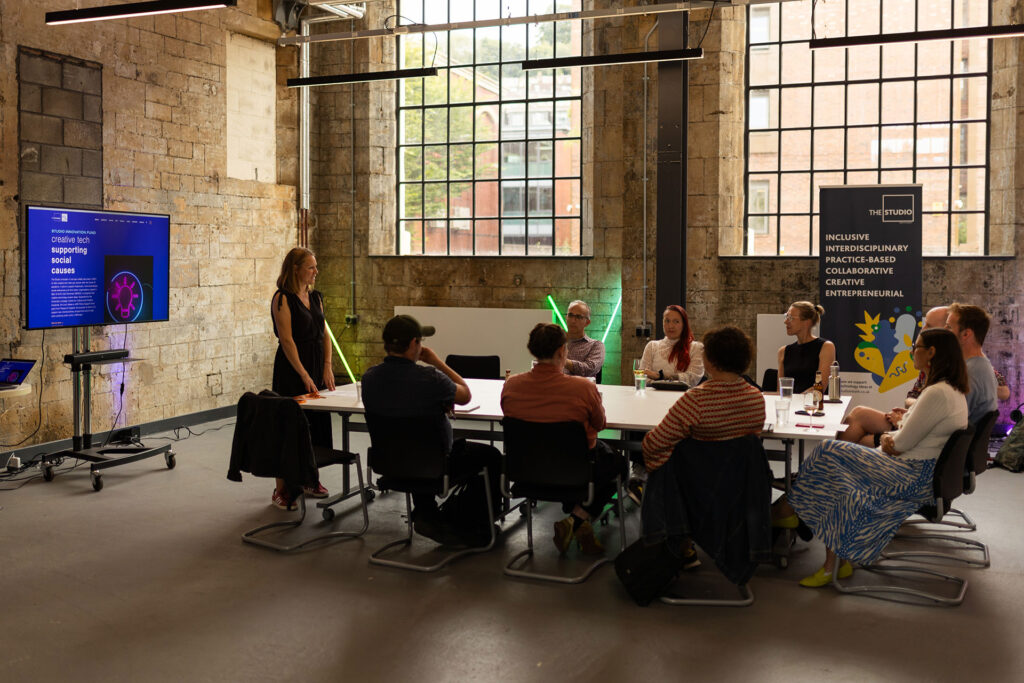
Who were the Awardees?
The Un-Truths
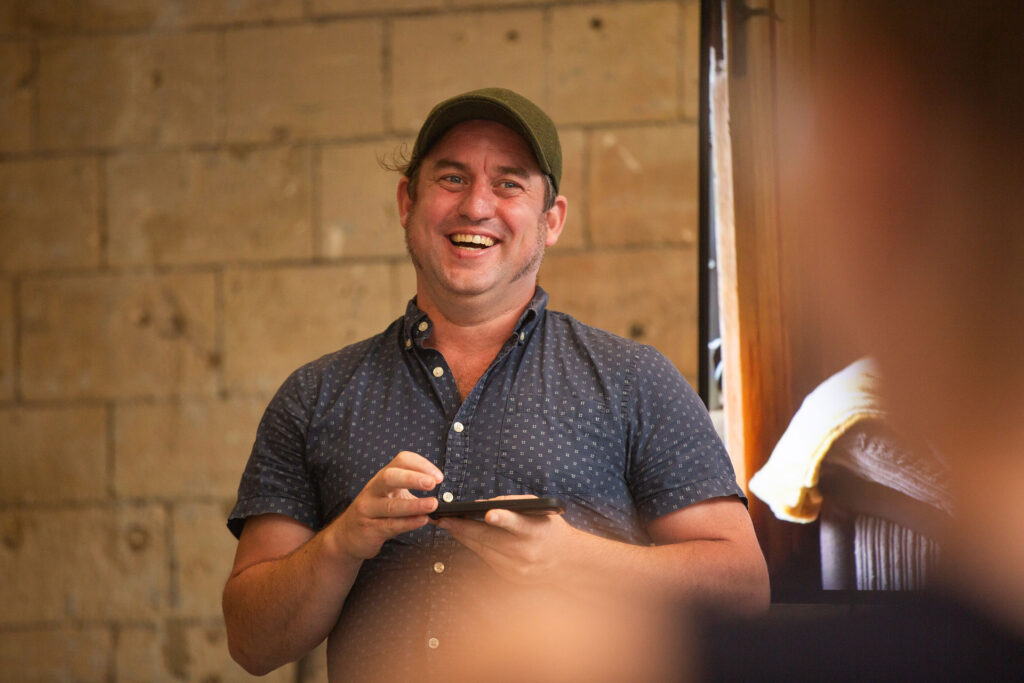
Jack Stoddart, the creative lead of Ramshacklicious, partnered with Common Wealth Theatre to empower people to access and create innovative, cutting-edge visual, musical, and digital performances that support alternative and unheard voices.
Waytego
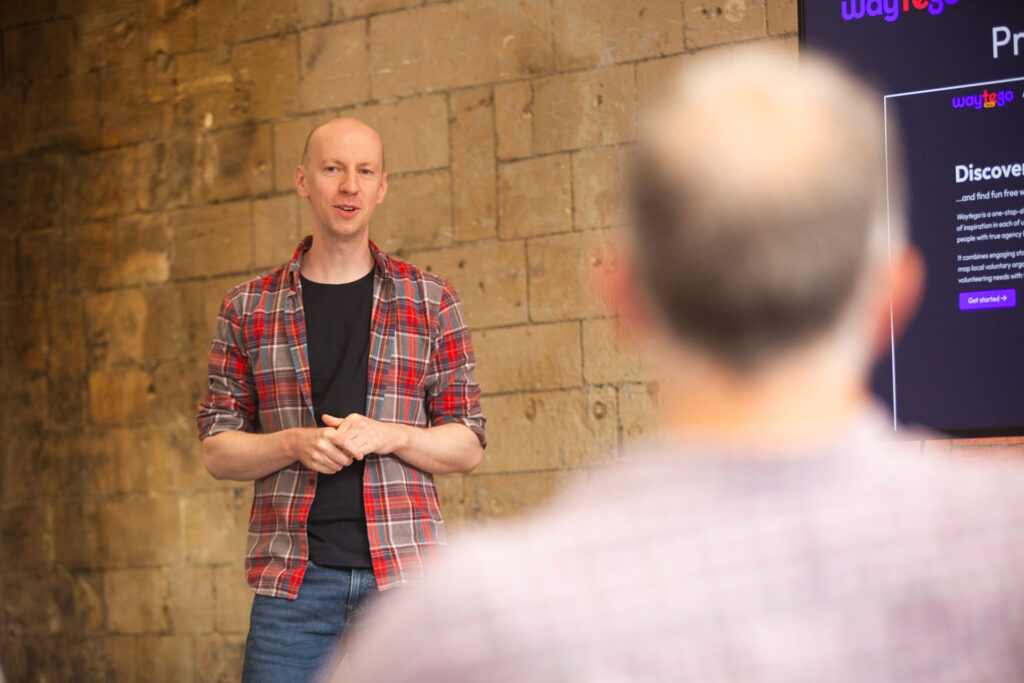
James Levelle, a filmmaker and adventurer, partnered with web and brand designer Joseph Lavington to prototype a one-stop-shop web tool to revolutionize volunteering. Their project explores building an interactive online map and using creative approaches to capture the stories and voices of grassroots groups, starting in the BANES area.
A Matter of Opportunity
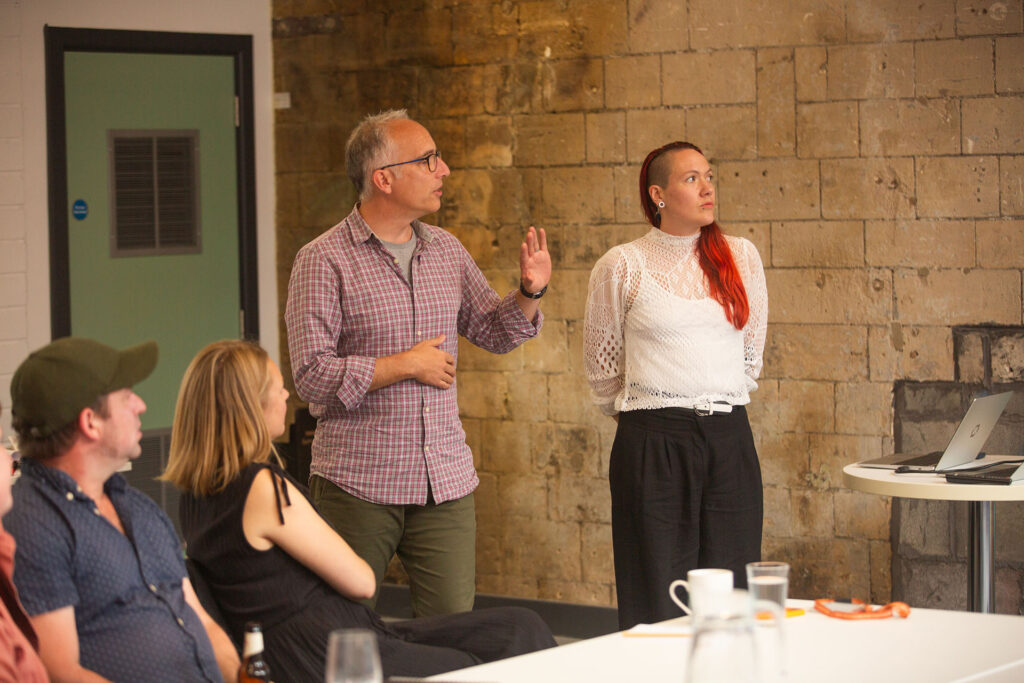
Jenny Ford, founder of Materials in Mind, partnered with Nick James, Director of Sustainability at Futureground, to address the countless unused or underused buildings in communities by exploring a new creative use of increasingly common 3D space capture technology to unlock greater social, environmental, and economic value.
Reimagining the Evaluation Experience
Too often, evaluation events are held in stuffy meeting rooms with nothing more than warm water in a plastic cup to keep participants entertained. This may not be everyone’s experience, but we were determined to turn this common scenario on its head and do things differently.
Here’s how the fund’s Project Manager, Louisa Clark, and the Studio’s Impact Manager, Stacey Pottinger, approached the evening:
Environment and Location
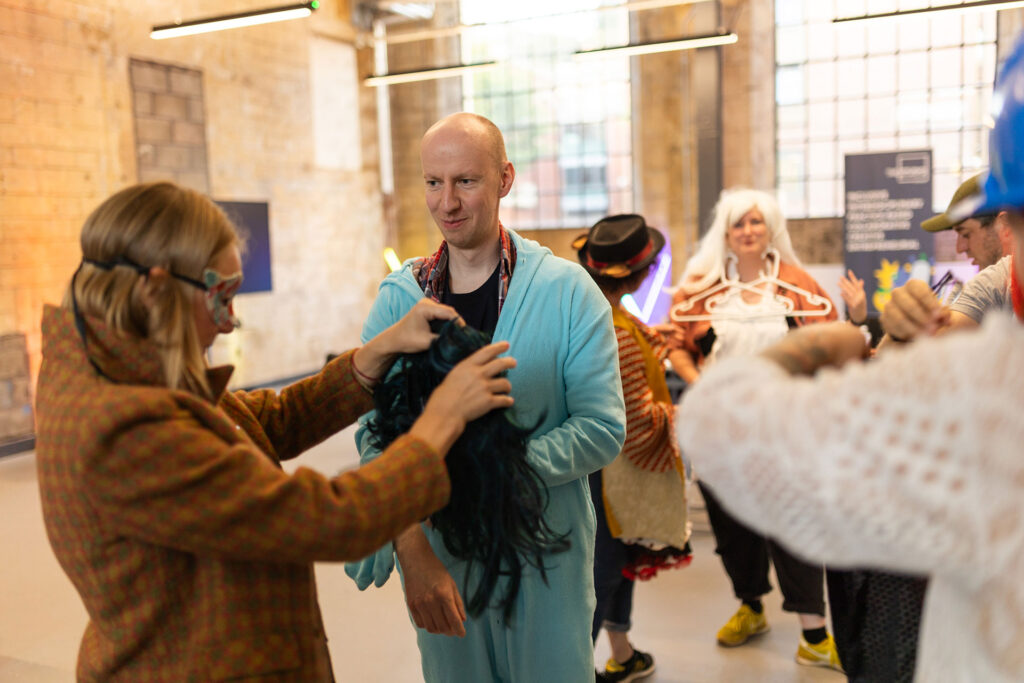
The environment in which attendees participate and play is critically important. We were delighted to spend the evening in the spacious downstairs area of Bath’s popular office and co-working spot, Newark Works. With natural light pouring through the windows and ample room to move around, a safe, dynamic, and playful space was enjoyed by all.
Food and Refreshments
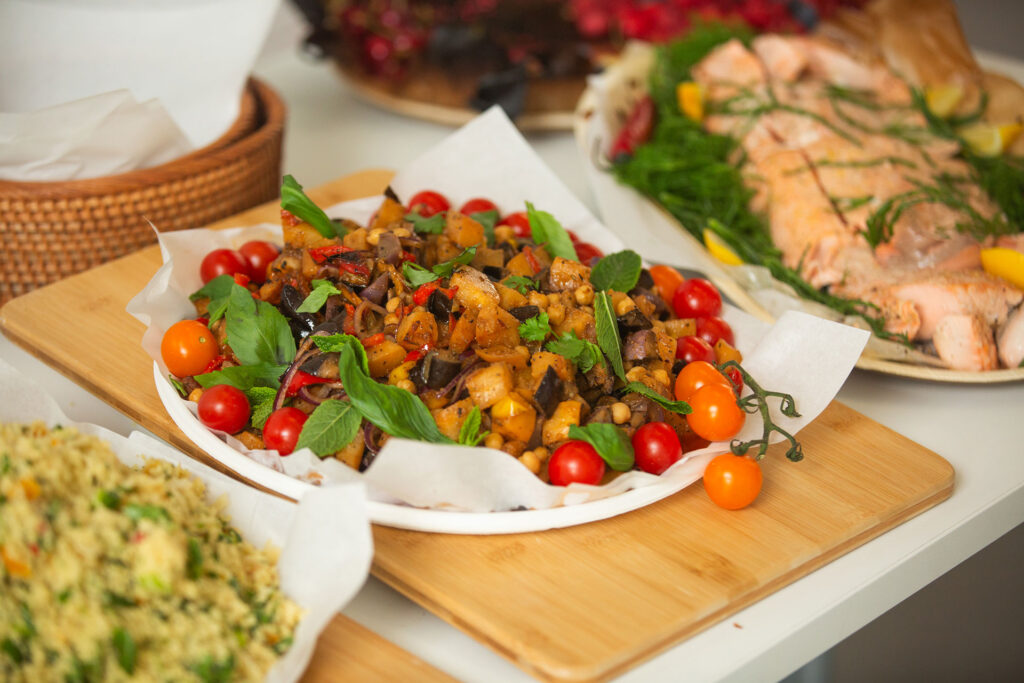
A good event relies on good food and refreshments—we all know this! Instead of viewing these elements as a mere ‘requirement,’ the team placed the evening dinner at the heart of the event. Something special happens when people come together to share food, and that effect is amplified after office hours! We are incredibly grateful to Rakesh from Bath Community Kitchen for providing what we believe is the best food we’ve ever enjoyed at an event.
Shared Experiences
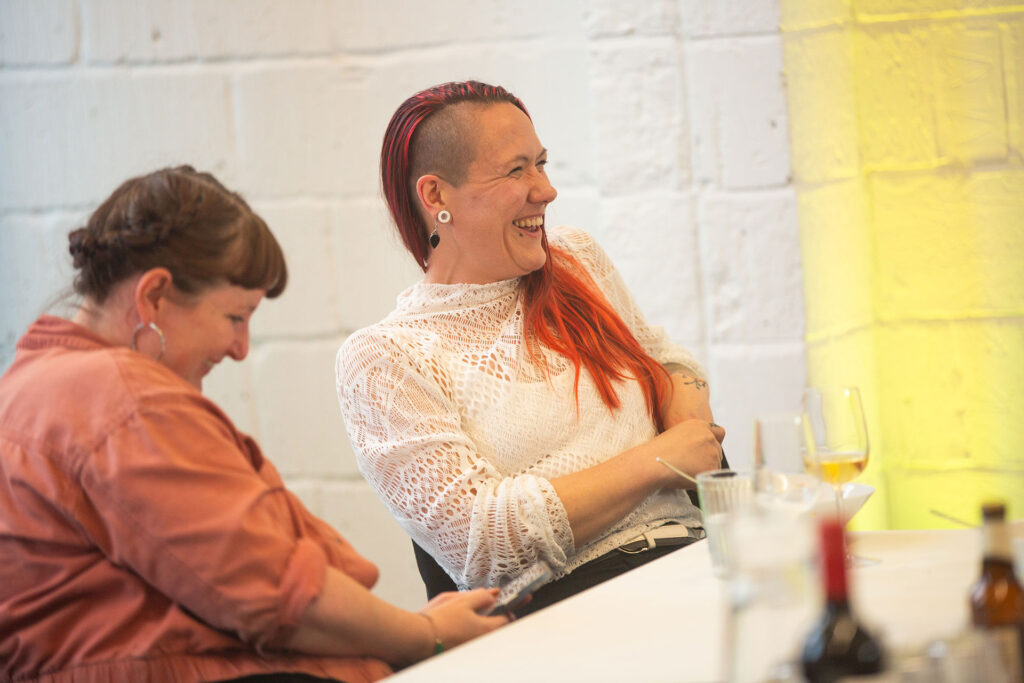
Participants should be given the opportunity to meet and learn from each other. Evaluation data is often collected in isolation or remotely using digital methods, with raw insights seen by no one but the impact manager. At the beginning of the evening, our awardees presented their experiences of working on their projects and had the chance to ask questions, compare notes, and get to know each other.
Costumes
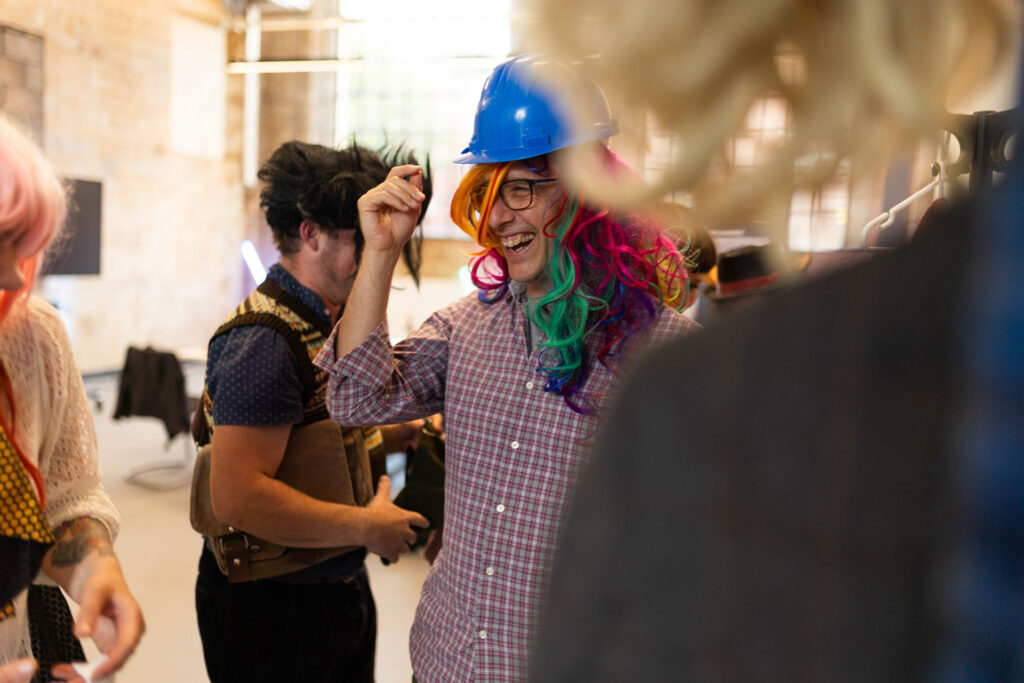
Costumes are a fantastic tool for encouraging different forms of understanding and sharing! During the event, participants dressed their teams in fun costumes based on their project experiences. Some fascinating insights emerged, and it was clear that each of the awardees had encountered a range of meaningful experiences.
Key Takeaways
- Everything is better with good food and theatrical or fancy dress costumes [although perhaps not combined… we wouldn’t want to ruin any outfits].
- The foundations of solid, progressive, and productive partnerships can be built when you have time, a bit of money, a shared purpose, and common values.
- Creative tech for social good is alive and capable of achieving amazing things. It will, and in some cases already does, contribute to social, environmental, and economic change if we focus on solving real-world problems.
- Evaluation can be boring… but not when you add play, costumes, and crafts, and everyone gets involved. We don’t always need to rely on surveys to explore and demonstrate value!
We are so proud of all our awarded projects, which have made significant progress in developing wonderful partnerships as well as creative and impactful approaches to addressing some big challenges.
Future Plans
Now the funded period has ended we are taking the insights from this evaluation event and feedback from the projects to reflect on the impact of the fund this year and a summary report will be available soon. The Studio’s Marketing Consultant, Nigel Fryatt, has also started planning the production of a short podcast series that will explore each awardee’s experience working on their project.
Details of the next Studio Innovation Fund will be released early in October 2024. Subscribe to our Newsletter to stay up to date with announcements about how to apply.
Thanks
We’d like to thank Bath Community Kitchen for providing incredible food, Newark Works for a beautiful space to host the event, Nick Spratling for capturing the evening perfectly through stunning photography, and Matthew Emeny for the funky costumes.
The Studio Innovation Fund
The Studio Innovation Fund is supported by the University’s strategic Centre for Cultural and Creative Industries and utilises a UKRI Policy Support Fund grant from Research England to grow new interdisciplinary programmes that help solve pressing public policy challenges.
